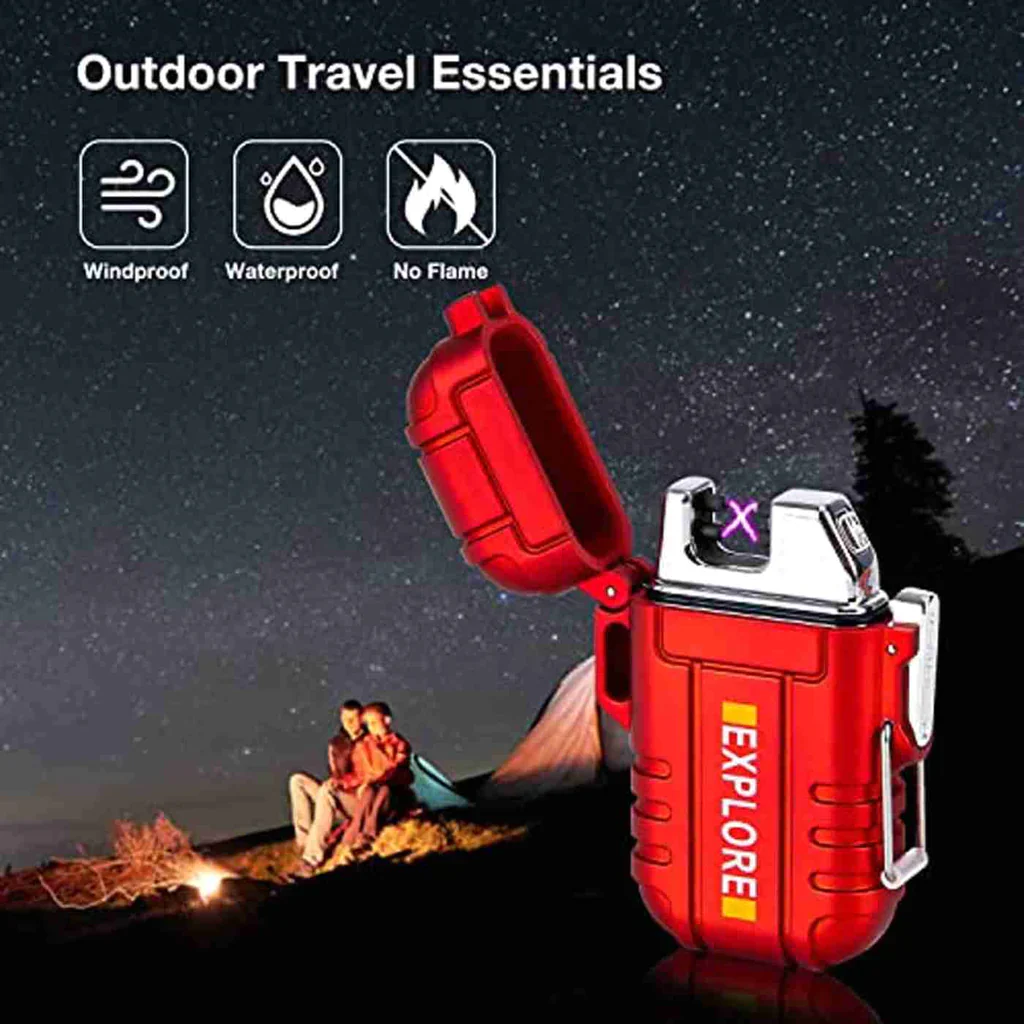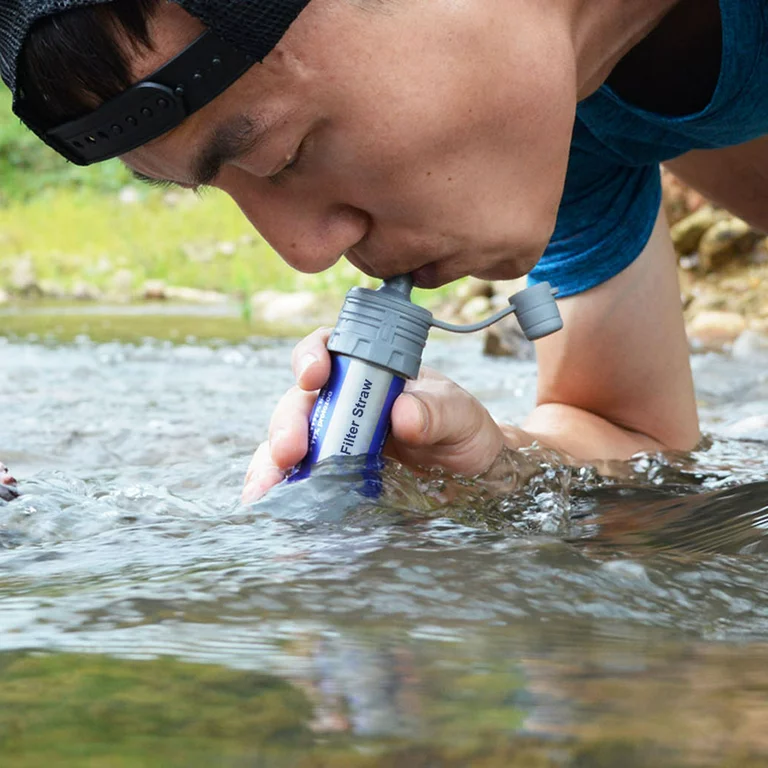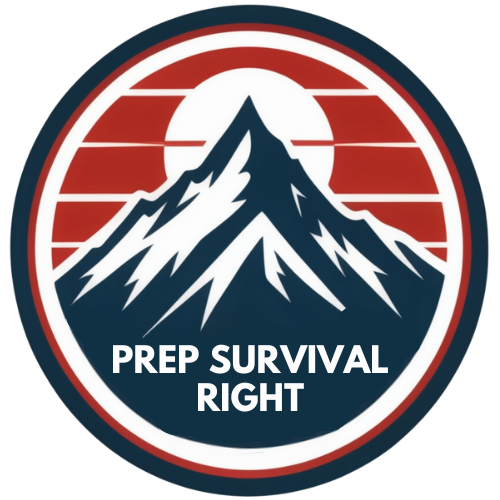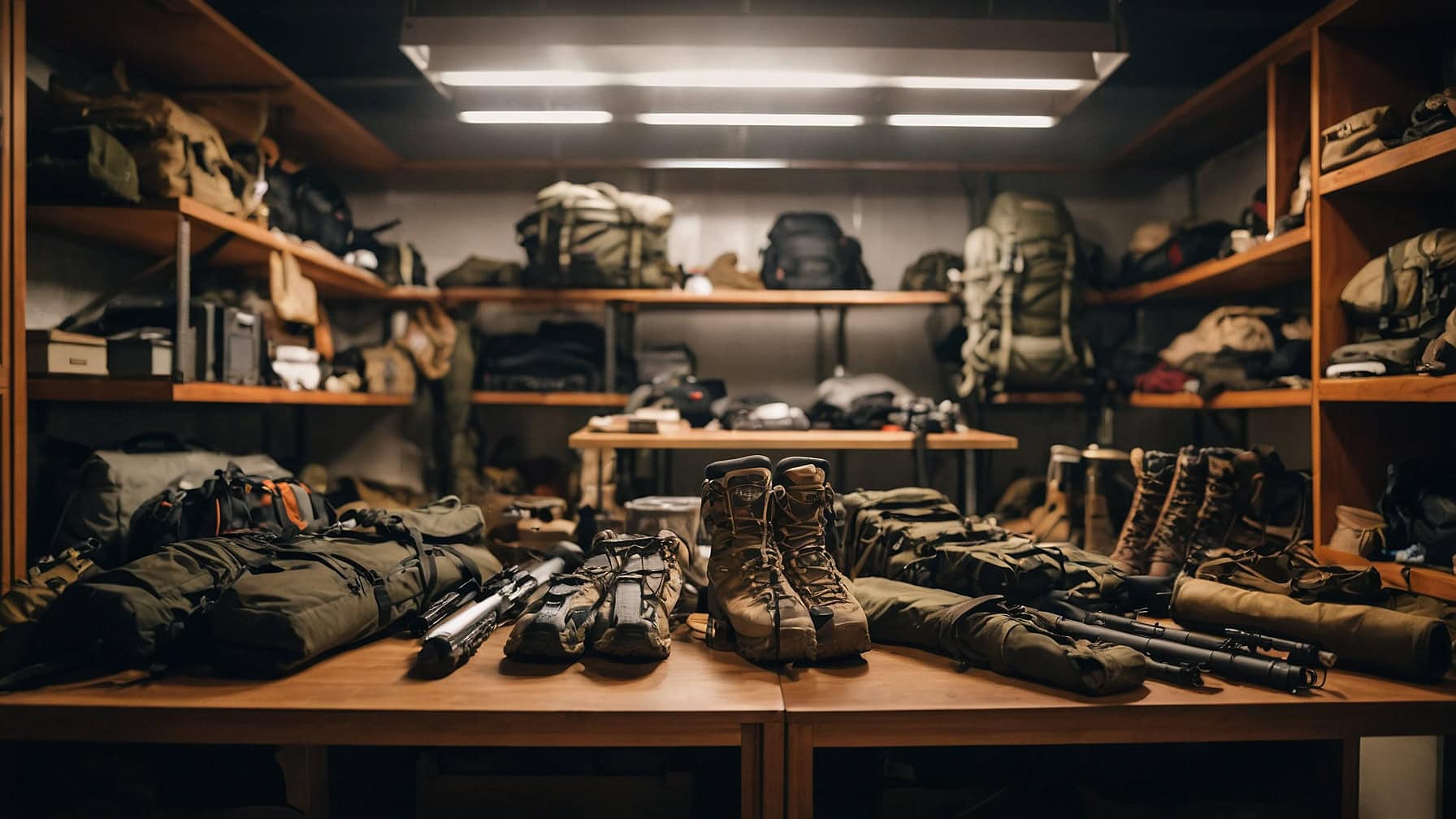You're packing for a wilderness adventure, and you've got your basics: tent, sleeping bag, provisions. But what about survival tools? Think about it, you're out there and the unexpected happens.
Would you be ready? From fire starters to first aid kits, there are certain items you shouldn't leave behind. We'll explore the must-have tools that can make a huge difference when you're far from civilization. Curious about what should make the cut? Stick around as we dig into the essentials.
Fire Starter
When it comes to braving harsh, cold conditions, one survival tool you can't afford to forget is a reliable fire starter. You're better off packing a few different types in waterproof bags. Throw in matches, a lighter, and a striker for good measure. Don't forget dry tinder either. If one method fails, you've got your bases covered with a backup.
Consider Primus's Ignition Steel as an all-weather option. It's a solid, fail-safe choice that won't let you down when you need it most. If you're looking to gather more tinder, a small folding saw is a smart addition. It's compact, practical, and will make the task of collecting tinder that much easier. Remember, preparedness is key, and a versatile fire starter is a must-have.

Survival Knife/ Multi-Tool
In the wilderness, a solid survival knife or multi-tool is your best friend, essential for tasks like sharpening sticks, cutting cords, or even preparing a fresh catch for dinner.
Being stuck in the woods without one could leave you in a tough spot. Along with making shelter construction manageable, a good knife can be utilized for cutting bandages if injury occurs. It's even possible to skin a hunt or fish, making it invaluable for wilderness survival.
We recommend the Primus FieldChef Pocket Knife. It's lightweight, easy to carry, and most importantly, it's sharp. Reliability and versatility are key when it comes to survival tools, and this knife ticks all the boxes. It's a must-have for any survival kit.
Compass
Don't let your survival hang on the whims of technology; a good old-fashioned compass is an essential part of any wilderness survival kit. GPS and smartphones may fail you, but a compass and map can be your reliable guides.
However, they're only as effective as your ability to use them. Don't pack them away without understanding how they work; your survival could depend on it. You can find guides on using a compass and map, or even a compass comparison chart to choose the best one for your needs.
Remember, the wilderness is unforgiving, so don't take chances. Equip yourself with a reliable compass and the knowledge to use it effectively. This old-school tool can be your lifeline when technology lets you down.
First Aid Kit
Equipping yourself with a solid first-aid kit is an important step in preparing for any wilderness adventure, particularly for long backpacking trips where minor injuries can quickly escalate if not properly treated.
Small bandages and antibacterial ointment are a must, but don't stop there. It's vital to also include a triangle bandage and gauze for compression. These lifesavers are for more serious injuries and can be used with a makeshift splint. Remember, in the wilderness, you're the first responder to your injuries.
Your first-aid kit isn't just a box of band-aids; it's your front line of defense against potential harm. So, make sure you're prepared for anything that the great outdoors throws your way.

Emergency Survival Whistle
While exploring the backcountry, you'll find a high-decibel emergency whistle to be an indispensable tool for your safety. A loud whistle serves multiple purposes in the wilderness.
Not only can it guarantee maximum effectiveness through ambient noise and travel great distances, but it can also alert wildlife, like bears, to your presence, helping you avoid unwanted confrontations. Opt for a whistle that emits at least 100 decibels to make sure it's highly effective. It's crucial to attach it not just to your pack, but also to your person.
This way, even if you're separated from your gear, you're never without this crucial survival tool. So, as you prepare for your next adventure, don't overlook the importance of a good quality survival whistle.
Paracord
In any survival situation, a Paracord - a jack-of-all-trades among survival tools - could be your best friend, serving as a lifeline in tricky scenarios like climbing steep surfaces, securing shelter, or even setting up trap triggers. This versatile tool, able to bear up to 550 pounds, could even be used for an emergency rappel.
The uses of Paracord don't stop there. Imagine needing to hang clothes to dry or wanting to fish for your dinner, you'd find Paracord incredibly useful. It's light, compact, and easily fits in any survival kit.
The benefits of having Paracord at your disposal can't be overstated. In the wilderness, it might just be the difference between a dire situation and a manageable one. So, don't underestimate the power of this seemingly simple tool.
Water Filtration
Given that you can only last about three to four days without water, having a reliable water filtration system in your survival kit isn't just recommended, it's essential.
This tool allows you to convert potentially harmful water sources into drinkable water - a critical lifeline when you're out of clean water supply. And it's not bulky; many portable options can fit into a pocket. Besides, it's smart to pack water purification tablets as a backup. These tiny lifesavers can purify water in the event your filtration system fails.
Remember, in survival situations, it's not only about having tools. It's about having the right tools, and a water filtration system is unquestionably one of them.

Flashlight / Head Lamp
After securing your water source, don't forget the importance of light, especially when night falls and you need to navigate your surroundings. A flashlight or headlamp is essential.
It's not just about seeing where you're going, but also about spotting potential dangers. Opt for a compact, lightweight option that won't weigh you down. If it's within your means, pack extra batteries. Remember, the longer your light source lasts, the better your chances of survival.
Having a headlamp can free up your hands for other tasks, so consider this when choosing your light source. Underestimating the value of a good flashlight or headlamp can leave you stumbling in the dark, so be sure to make this a priority in your survival kit.
Tarp
Don't overlook the humble tarp, a multifunctional survival tool that can make a significant difference in your outdoor adventures. You can't always rely on crafting a survival igloo, and you might want to save your space blanket for body warmth, not shelter.
That's where a tarp comes into play. Its versatility is unmatched; use it as a ground pad for your tent, as an overhead cover for your campsite, or to shield your gear from harsh weather.
It can even serve as a food prep surface, or if you're in a pinch, a means to collect drinking water. Few survival kit items offer the breadth of utility that a sturdy tarp does. Make sure you always have one handy.
Signal Mirror
While a tarp can protect you from the elements, a signal mirror can save your life by alerting others to your presence when you're lost or in distress. You never want to be so exhausted or distant that you can't signal for help.
A signal mirror can be seen up to 15 miles away, making it a crucial tool when you're in trouble. On a clear, sunny day, this mirror can effectively grab the attention of first responders.
Some compasses even include a mirror, eliminating the need for an extra item in your survival kit. So, don't underestimate the importance of a signal mirror. It's a small, easy-to-carry tool that can make a significant difference in a survival situation.
Space Blanket
Another lifesaving tool you should always keep on hand is a space blanket, specifically designed to combat hypothermia, even when it's a mere 50°F outside. Hypothermia can strike without much warning, and it's not always about extreme cold. A damp, 50°F day can be just as dangerous as a snowy, freezing one.
A space blanket, also known as a solar blanket, can be a real game-changer. It's engineered to retain and reflect your body heat, helping you stay warm when temperatures drop.
Additionally, they're incredibly compact and lightweight, so you can easily tuck one into your backpack or survival kit. Don't underestimate this simple tool – it might feel like a thin piece of foil, but it could save your life.
A dry bag
In the domain of survival tools, a dry bag is an essential item you should never overlook. This handy tool guarantees key survival items like matches, firestarter, and even your phone stay dry and safe.
It's not just for keeping things dry though. If you opt for an Ursack variant, it doubles as a smell-proof bag. This feature is particularly useful for storing food or other scented items that might attract unwanted attention in the wild.
Your survival gear is only as good as its condition, and a dry bag plays a vital role in maintaining that. So, always have one in your survival kit. Remember, in survival scenarios, it's the little things that count.
Thrive Leads Shortcode could not be rendered, please check it in Thrive Leads Section!
Final Gear Check
So, there you have it! You're never truly prepared for a wilderness adventure without these essential survival tools. A fire starter, survival knife, compass, first aid kit, and emergency whistle could literally save your life.
Throw in a tarp, signal mirror, space blanket, and a dry bag, and you've got a solid survival kit. Remember, it's always better to have and not need, than to need and not have. Stay safe out there!

